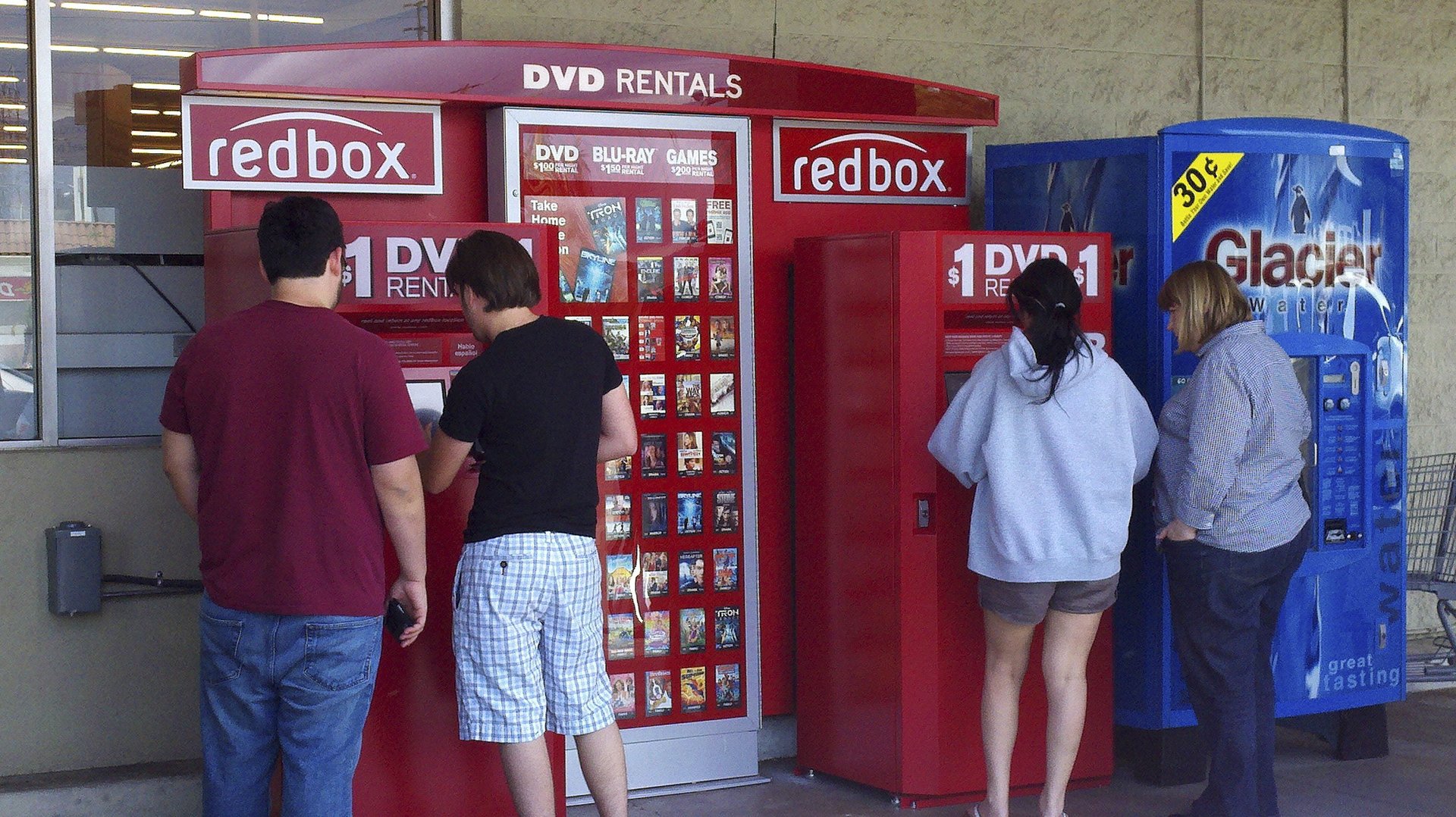Redbox is the dumbest meme stock yet
Just outside the doors of my local CVS, along an industrial road in Ann Arbor, Michigan, there’s a Redbox. I only ever notice its red glow on dark Michigan nights when I walk into the convenience store to pick up some Advil and a pack of Oreos. I’ve never seen anyone use it.


Just outside the doors of my local CVS, along an industrial road in Ann Arbor, Michigan, there’s a Redbox. I only ever notice its red glow on dark Michigan nights when I walk into the convenience store to pick up some Advil and a pack of Oreos. I’ve never seen anyone use it.
I’m not alone. The DVD vending machine company lost $140 million in 2021 as DVD rentals plummeted, leading the company to cut 150 jobs in April 2022.
That hasn’t concerned investors who recently pumped up the stock up to record highs. On May 23, Redbox’s stock was trading 12 times the price it was just sold at, meaning investors are trying to make a buck on volatility before it eventually closes out at $.49 a share when the deal closes.
There is no secret value in DVD vending machines. Redbox has joined the ranks of America’s booming meme stocks, defying a market threatening to turn into bear territory. Retail traders are just making Redbox the latest (and perhaps the dumbest) meme stock
Redbox: From SPAC to meme stock
Redbox’s movie vending machines were a novel idea for a different era. In the mid-2000s, my family’s weekly trips to the movie rental giant Blockbuster were interrupted by a company called Netflix that would mail us one movie at a time. Redbox popped up in our local grocery store not long after, just before streaming on-demand video—pioneered by Netflix—reoriented Hollywood and changed contemporary ideas of home movies.
While Redbox was a pioneer, its business never really took off. Home movie rental is now something we do at home: Streaming has become an $473 billion industry and 86% of US households use video streaming services like Netflix and Hulu, according to Kantar.
Redbox was bought by Chicken Soup for the Soul Entertainment, now a multimedia company of its own, for about $31 million on May 11. Redbox was only a publicly-traded company for a short time: It went public through a special purpose acquisition company in 2021 and traded between $1.50 and $16 per share during that time.
But the pandemic disrupted planned movie releases and hurt Redbox’s business. As a result, the company amassed $300 million in outstanding loans by the time of its sale. While most companies warrant a premium when they are sold, Redbox offered a steep discount. Bloomberg’s Matt Levine called it a “take-under” (rather than a takeover) and likened the 88% discount to JPMorgan Chase buying Bear Stearns after the financial crash in 2008.
Pumping and dumping
Redbox’s troubled purchase terms make its meme stock status even more confounding.
On Reddit, there’s been chatter about a short squeeze, but only about 29% of Redbox’s public float has been sold short, according to data published by FactSet. Short squeezes work when so much of a company’s stock is shorted that when buyers drive it up, shorts have to re-enter the market by buying new shares to cover their own loss, sending the stock even higher. (By contrast, 140% of GameStop’s float was shorted when retail traders took it to the moon in January 2021.)
When the sale to Chicken Soup for the Soul closes in the next few months, Redbox stockholders will be paid out at $.49 a share. “I don’t see any scenario where an investor could make money, aside from the greater fool theory,” one financial analyst told Yahoo Finance.
In other words, retailers might be pumping the stock and hoping to get out before the dumping starts. This trading activity appears to have nothing to do with movies, streaming, or large red vending machines. Like other consumer-facing companies that tap into retail trader nostalgia—like GameStop, AMC, Bed Bath & Beyond, Blackberry, and even Blockbuster—Redbox is just another momentary Wall Street meme. At least this one has an expiration date when the deal closes.